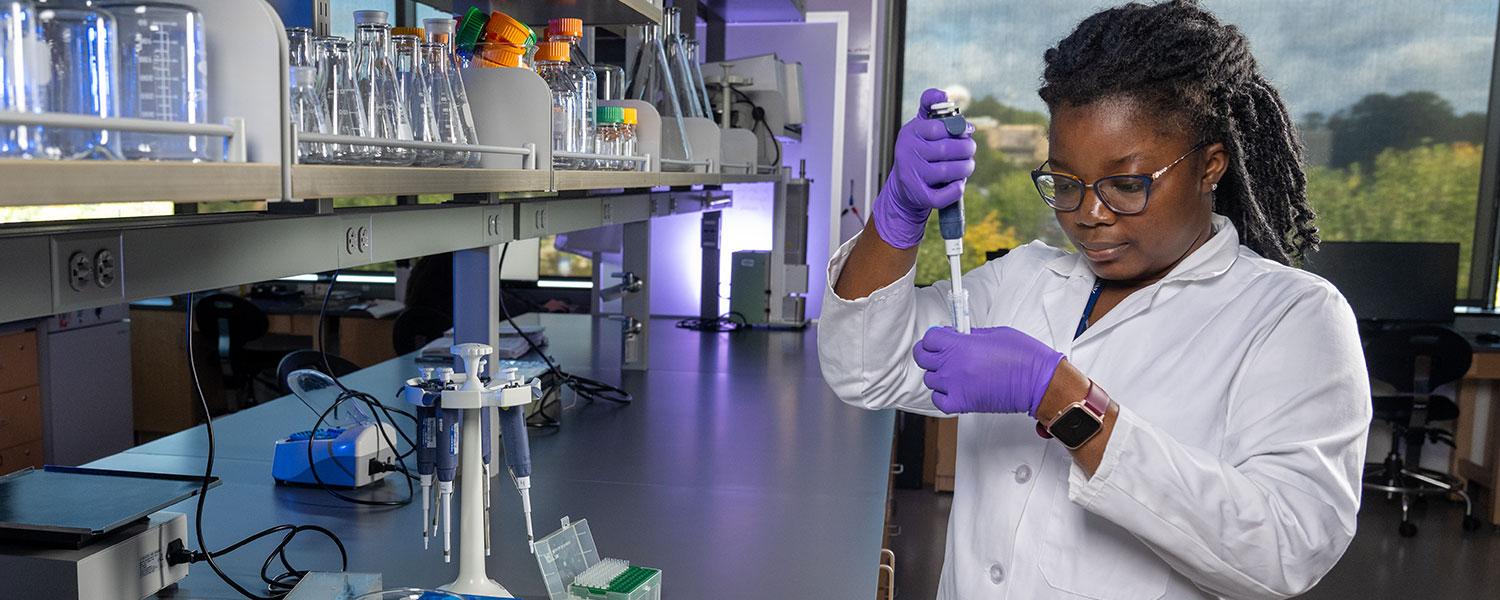
Our Biology B.S. program provides you with a solid foundation in the fundamental principles of biology, as well as advanced knowledge in specialized areas of the discipline. With state-of-the-art facilities, cutting-edge technology and experienced faculty, you'll gain the skills needed to succeed in the fast-paced world of biology.



